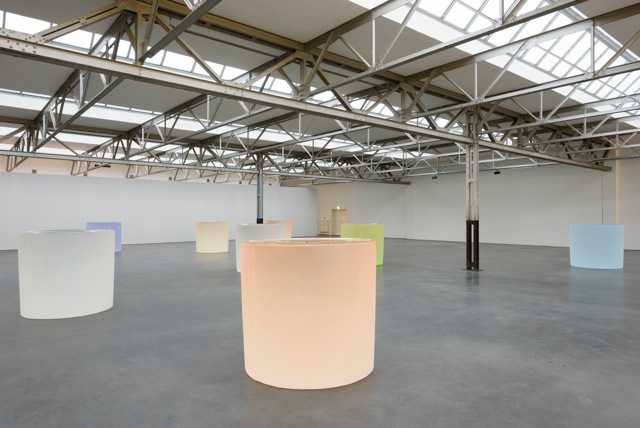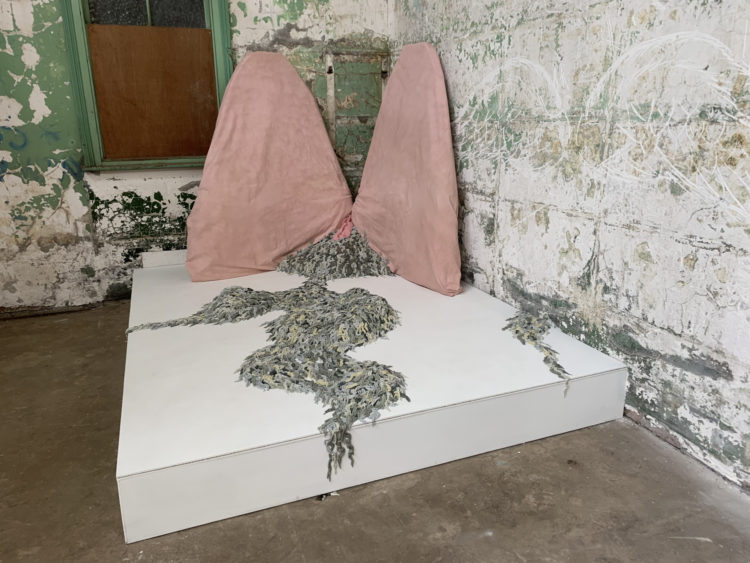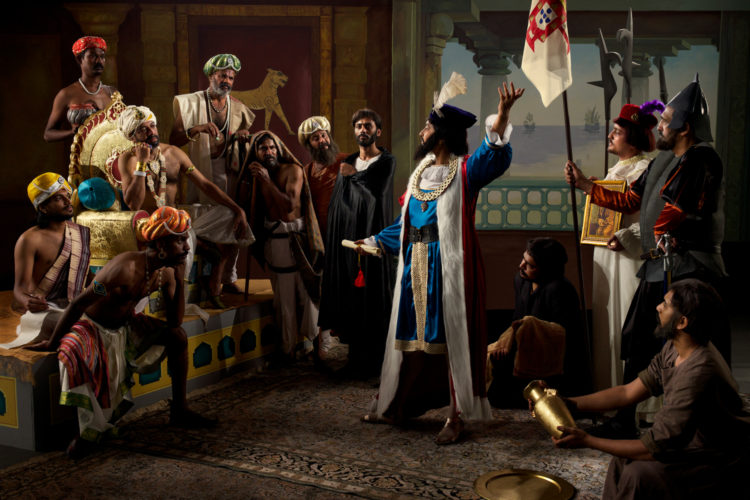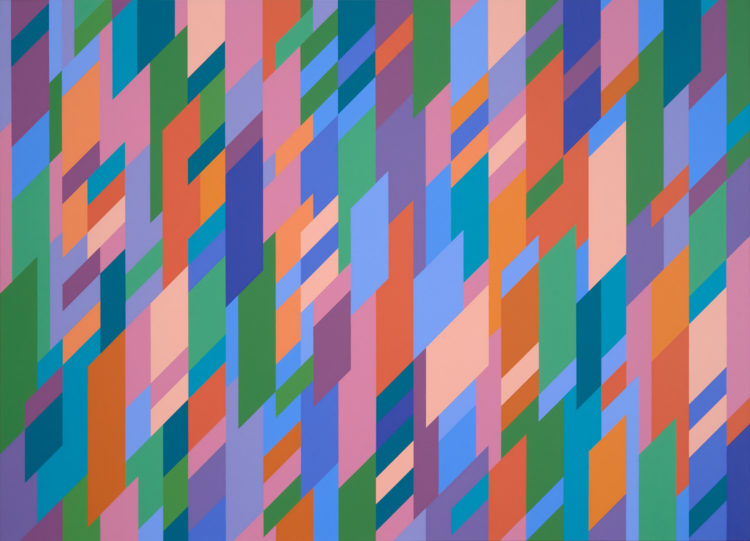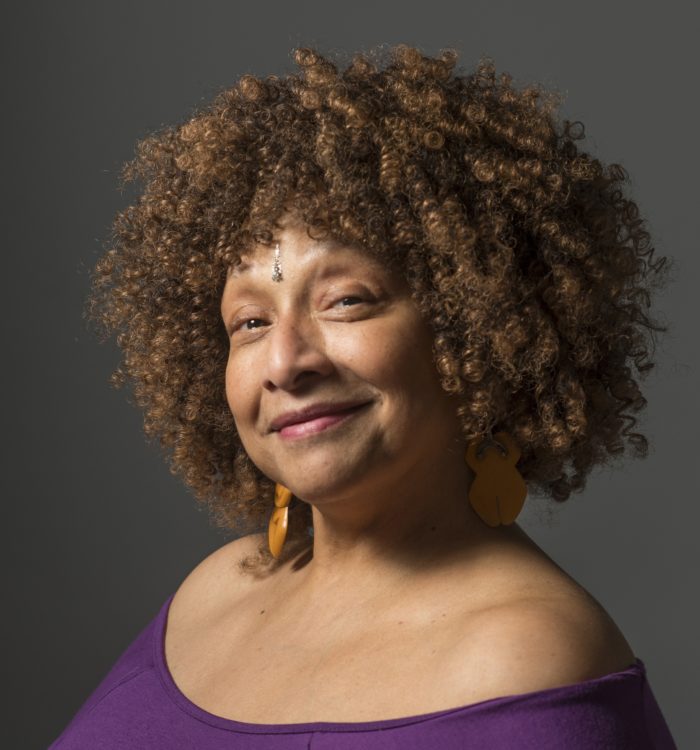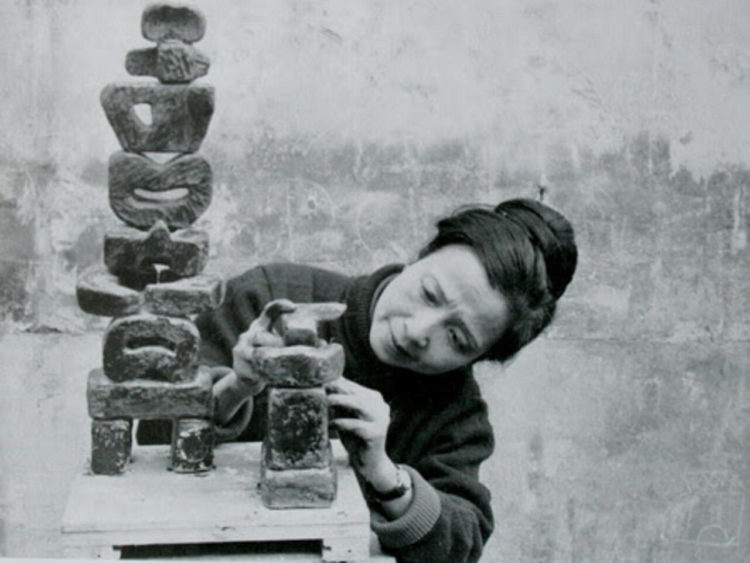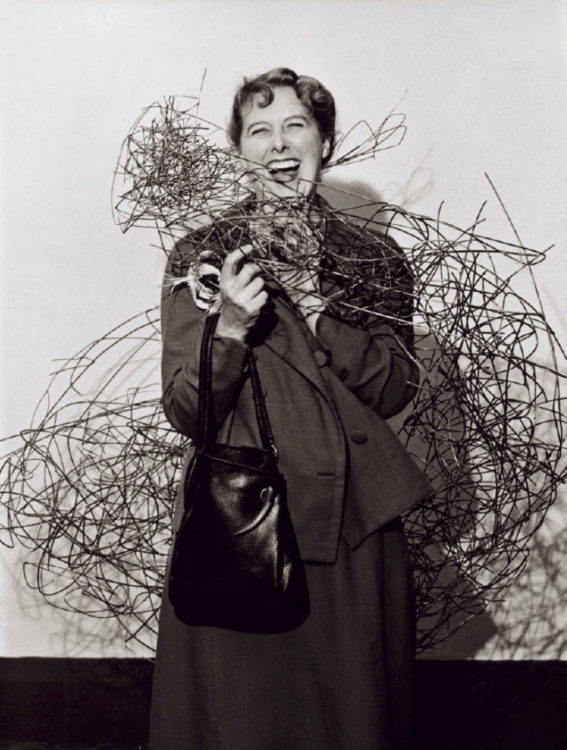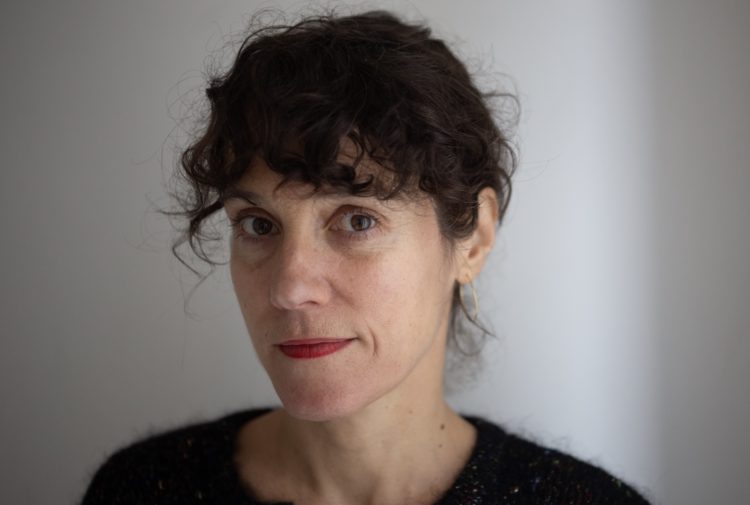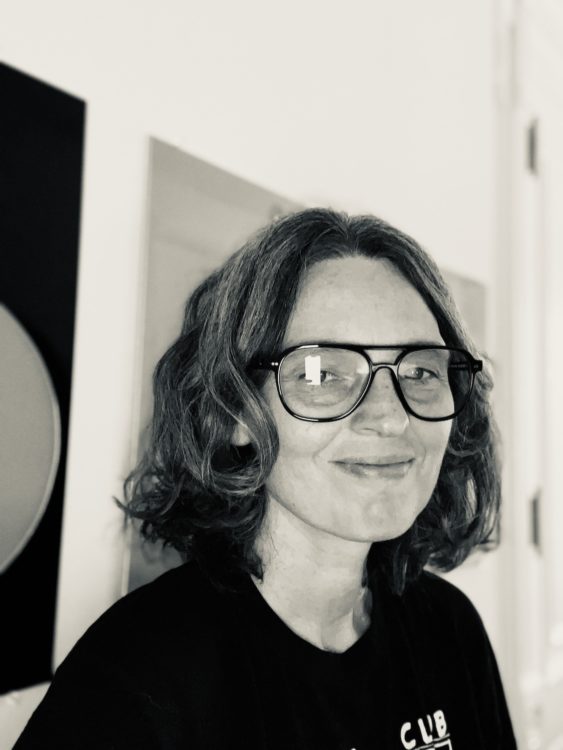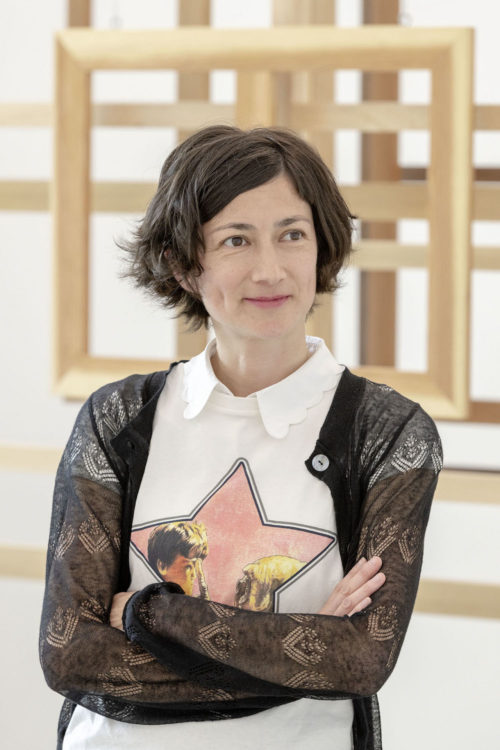Isabelle Cornaro
Clément Dirié, ed., Isabelle Cornaro, Geneva: JRP | Éditions, 2023
→Julie Enckell and Isabelle Cornaro, La Fascination et le Dégoût de la matière / The Fascination with the Material and the Aversion to It, Zurich: Scheidegger & Spiess / SIK-ISEA, 2023
→Isabelle Cornaro, A Sort of Commercial Eroticness, Paris: Fondation Pernod Ricard, 2021
Mother, Laws, Matter, Fondazione Giuliani, Rome, 22 March-29 June 2024
→L’Intervalle des images, Musée de l’Orangerie, Paris, 2 June-6 September 2021
→This Morbid Roundtrip from Subject to Object, LAXART, Los Angeles, 11 January-22 February 2014
French artist.
Necklaces, rocks, textiles, metals, coins, gems and masks: the work of Isabelle Cornaro revolves around collections of objects. Real or fake, precious or cheap, these things are displayed with care, reproduced as casts or prints, or represented in photographs and films. Sometimes strange and seductive, and sometimes grotesque and derisory, the materiality of these objects is emphasized, as the artist suspends their circulation and forces the viewer to stop and ask: Where does the pleasure incited by these objects stem from? What forces determine their trajectories? What exchanges have they been subject to?
The questions underlying I. Cornaro’s practice are as much connected to art and cultural history as they are to aesthetics and anthropology, while also reflecting on the categories of exhibition and collection, object and artwork. Her approach was initiated in the 2000s, following studies at the École du Louvre and the École des Beaux-Arts in Paris. Though her work developed alongside that of a generation of artists influenced by conceptual art and the 1990s’ experimental approach of exhibition, her relationship to the object already raised specific challenges. Savane autour de Bangui et le fleuve Utubangui (2003-2007) is a series of photographs in which a set of jewels trace a topographical map: the work alludes to colonial exploitation but also carries an autobiographical weight, the artist having lived in the Central African Republic as a child. In the installation Paysage avec Poussin et témoins oculaires (2008), various trinkets, measuring instruments and textiles are placed on pedestals in a reworking of the perspectives of a painting by Nicolas Poussin (1594-1665). This elaborate construction evokes the complicity between pictorial representation, the appetite for collecting and the imperialist order. It is the inaugural work of I. Cornaro’s Paysages series, in which a reflective approach to installation opens to the “abstraction” of the objects’ forms, while simultaneously drawing attention to their particular connotations.
The artist also makes 16mm films, in which she uses the formal vocabulary of experimental cinema to pursue her research on objects, their representations and our gaze. She also invokes horror fantasies in films such as Subterranean (2017-2019), in which bodies and objects drip blood, or Paroxysme (2021), which incorporates science-fiction animation. Her film Floues et colorées (2010), for its part, started a series of abstract paintings titled Reproductions (2010-ongoing): painted with a spray gun on canvas or straight onto the wall, these works recreate the nuances of colour of that film’s photograms. The tarpaulins used to protect the exhibition space during the in-situ creation of Reproductions in 2015 would later become the inaugural works of the Golden Memories series (2015-2022), the carpets speckled with a constellation of paint drops taking on new value. Working in this way, between intuition and method, the artist’s approach is at once sensitive and critical, as affirmed in exhibitions such as L’Intervalle des images at the Musée de l’Orangerie in Paris (2021), where casts of industrial and exotic objects from the 19th century (Streams III, 2021) were set in dialogue with Claude Monet’s (1840-1926) Water Lilies, and Sunset at the Ludwig Museum in Coblence (2021), where her film works were displayed together, echoing each other in the semi-darkness of the exhibition galleries.
I. Cornaro has been an advisor at the Rijksakademie Amsterdam since 2015 and a professor at the École des Beaux-Arts de Paris since 2023. In 2010 she was awarded the Fondation Pernod Ricard Award and in 2021 she was a nominee for the Marcel Duchamp Prize.
A biography produced as part of the +1 programme.
© Archives of Women Artists, Research and Exhibitions, 2024



 Isabelle Cornaro nommée au Prix Marcel Duchamp 2021 | Centre Pompidou, Octobre 2021 (French)
Isabelle Cornaro nommée au Prix Marcel Duchamp 2021 | Centre Pompidou, Octobre 2021 (French)  Isabelle Cornaro par Clément Dirié - Prix Marcel Duchamp 2021| The Farm, December 2021 (French)
Isabelle Cornaro par Clément Dirié - Prix Marcel Duchamp 2021| The Farm, December 2021 (French)  Entretiens sur l'art // Isabelle Cornaro | Fondation Pernod Ricard, 2021
Entretiens sur l'art // Isabelle Cornaro | Fondation Pernod Ricard, 2021 

































